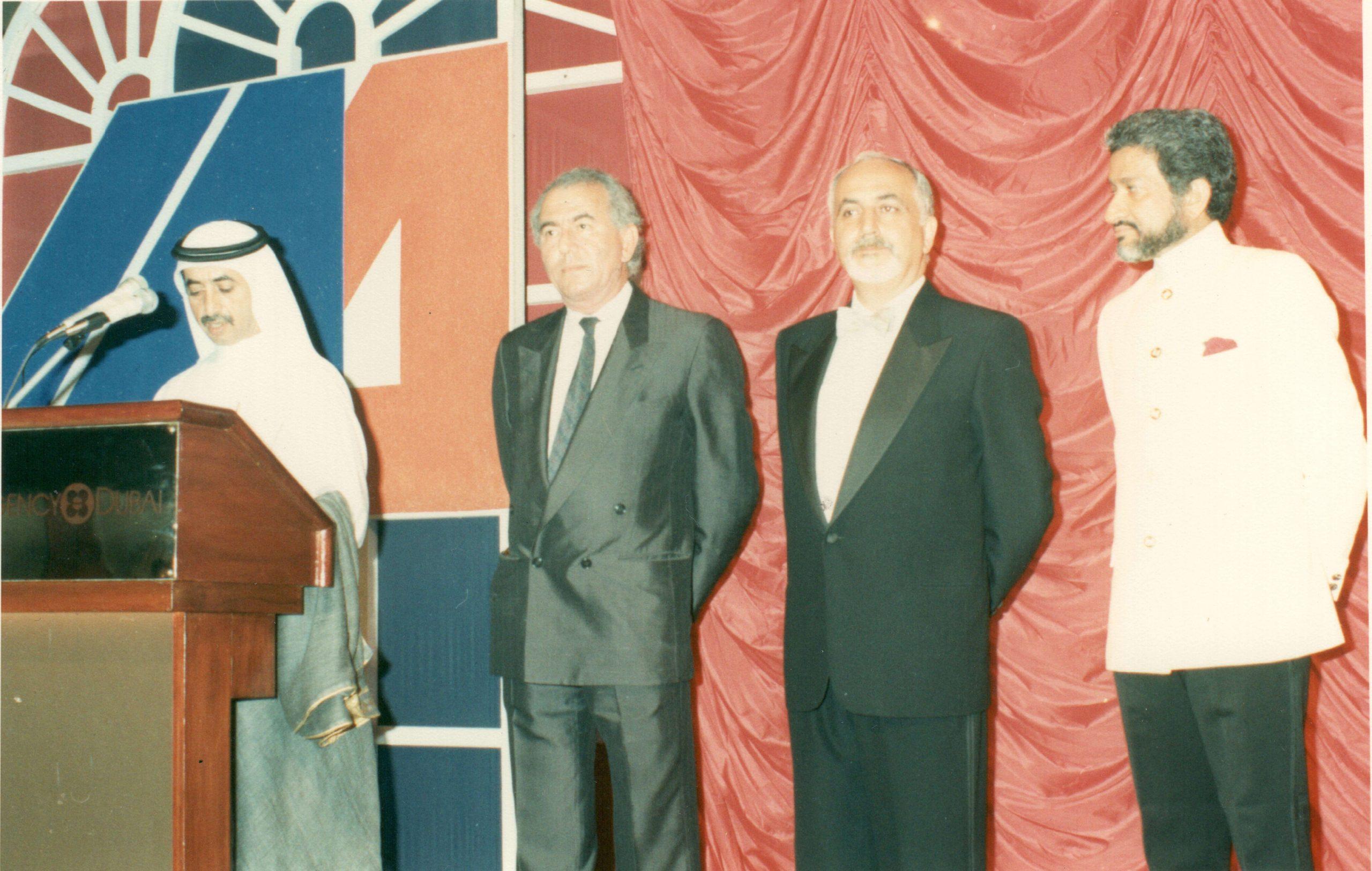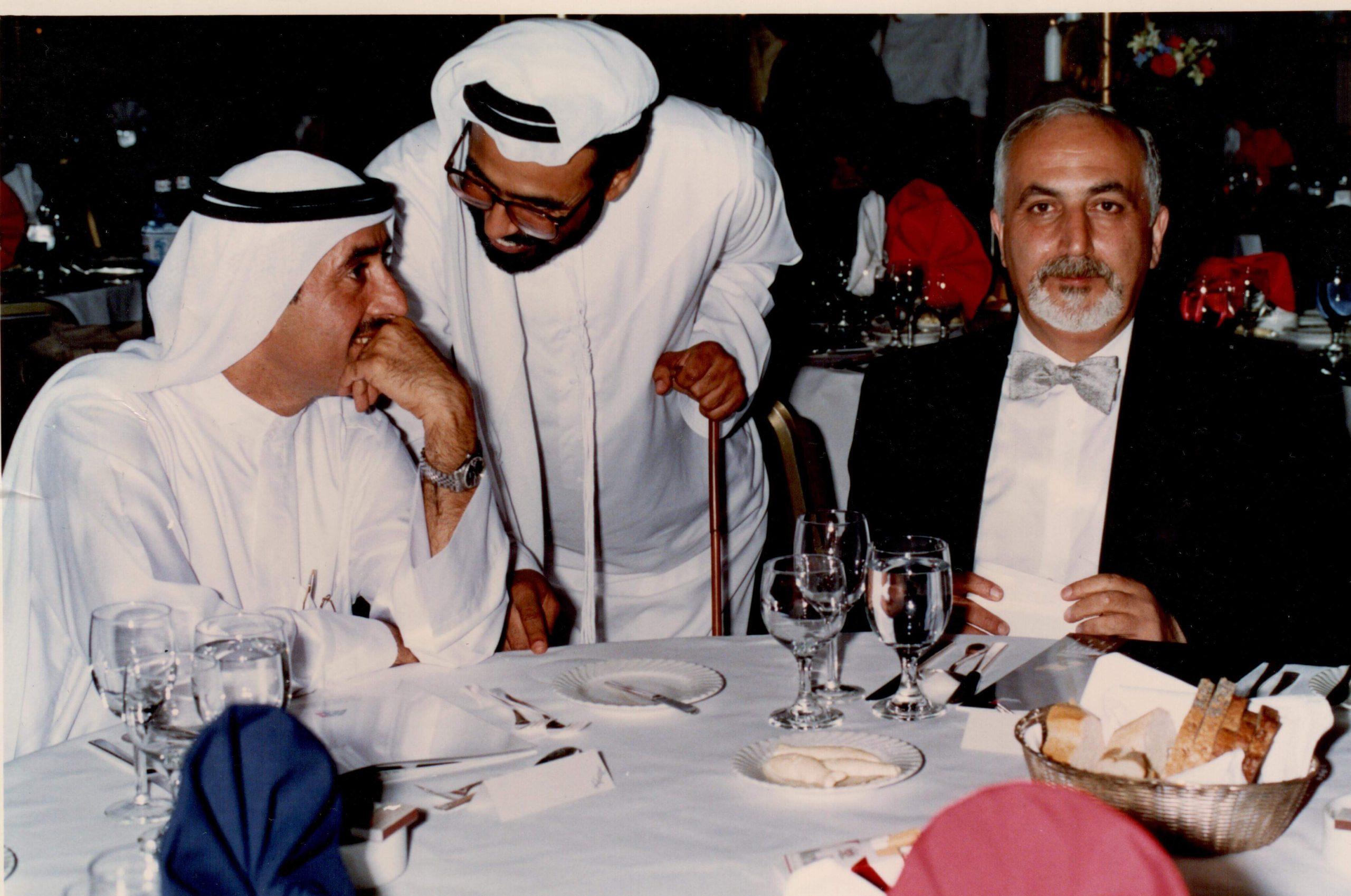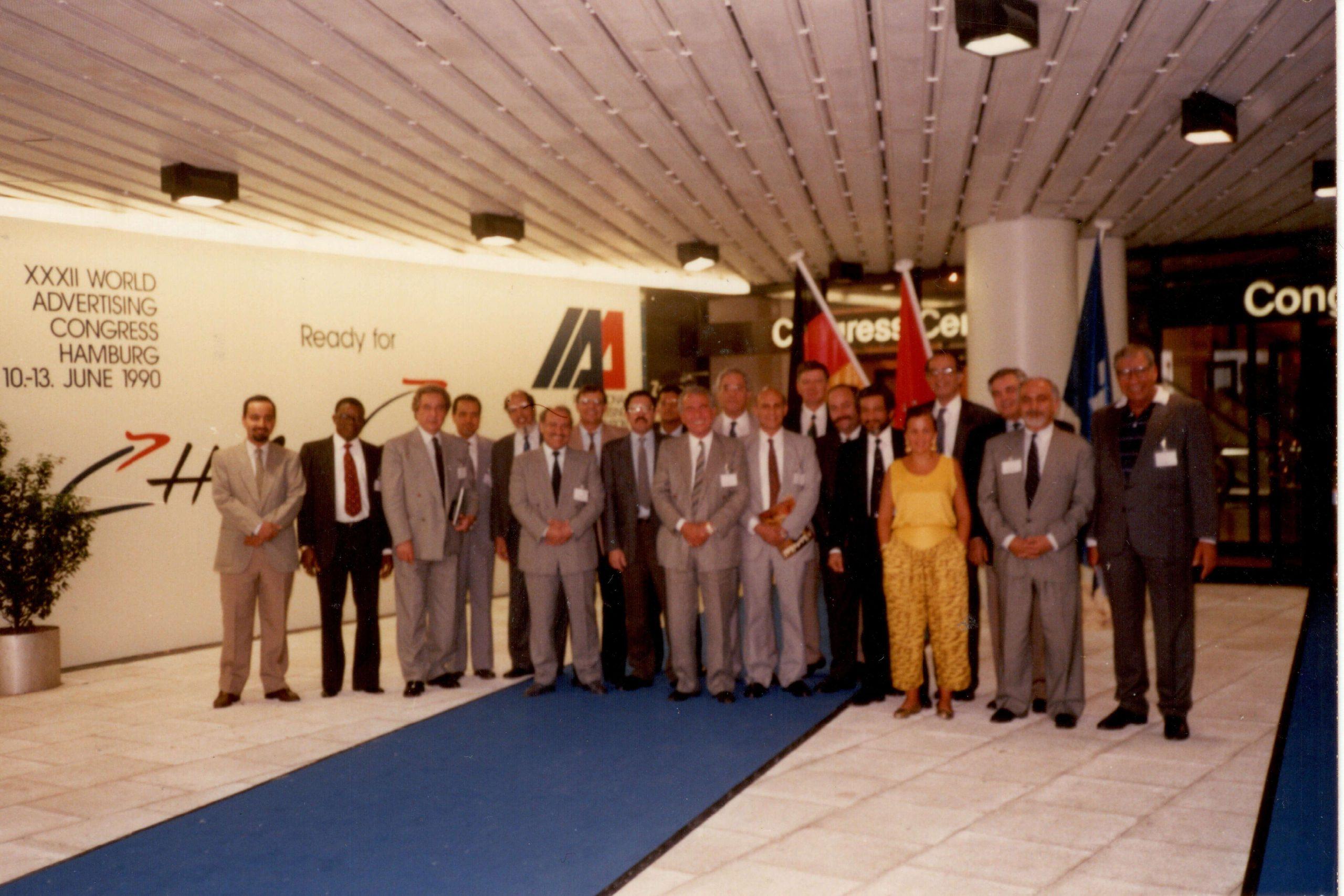During the final quarter of 1989, I was invited to the IAA World Executive Committee meeting and flew to Pakistan once again. The meeting in Karachi provided me with the opportunity to bond with several interesting executives, including Javed Jabbar, Pakistan’s information minister, Alexander Brody, the IAA’s world president and global CEO of Y&R, and Marie Scotti, director of membership at the IAA’s headquarters in New York. Later, I realized that these personal interactions should have been instrumental in my progress within the hierarchy of these international industry groups.
By 1990, advertising award competitions had become a fad in Dubai. Media groups such as Khaleej Times were running competitions at the same time as a courier company called Meamco launched its own advertising awards scheme. At the IAA, we became extremely annoyed that every Tom, Dick, and Harry was stepping on our turf without being qualified. Within the chapter’s board, we had faced hesitation. Every time the plan I had announced during my presidency speech was discussed, the board members remained doubtful that we would be capable of securing the fair and non-biased judging of entries. However, when I put forward a plan for the IAA GCC Advertising Awards, which I had spent hours working on, it was endorsed by all.
I was keen to ensure that the IAA awards program should be professional, flawless, and exciting. Therefore, we entrusted the management of this awards program to the non-agency members of the chapter’s board. In turn, they appointed a select group of honest and experienced communication experts, who had no personal friendships in Dubai, to act as judges. From my side – and to set an example to my board colleagues – I did not allow the creative team at Intermarkets to participate. Later, I found out that, in doing so, I had created a lot of enemies for myself within my agency.
The awards management committee reverted to the board, saying it had failed to identify any Arab judges. So, we stepped in to help and our collective effort led to the identification of a UAE national called Mohammad Al Nouri, who was head of Dubai Municipality’s advertising department. He proved to be a seasoned and charismatic judge whose expert advice prevailed when the expatriate judges were undecided about the local relevance of some entries.
We agreed with the organizing committee that the results would not be announced until the awards gala dinner, allowing us the time to vet the winners and ensure that the integrity of the competition, the IAA UAE Chapter, and the creative excellence of each of the winning entries was respected. The first GCC IAA Advertising Awards were a smashing success. The media celebrated and the judges who returned home in Asia, Europe and the US spread the news about the level of creativity in the Arab World.
The same year, the UAE Chapter participated in the 32nd IAA World Congress in Hamburg, Germany. It was a typical German event packed with quality speakers tackling the latest developments in the world of communications. At the same time, it had a rich social and entertainment program, including cocktails and a tour of the International Maritime Museum. The farewell dinner was hosted in a very old building in the Hamburg Port area, which accommodated many young musicians representing the folklore of Germany over the ages.
That was one aspect of the Hamburg congress. However, the delegates who came from the Middle East seem to have brought their politics with them, marring the participation of the non-politicized few, including me.
The unexpected death of Samir Fares following his success at the Sydney congress, where he had been voted the IAA’s world president elect, seems to have whet the appetite of Publi Graphics’ Mustapha Assad. Mustapha’s entourage lobbied the IAA, saying the presidency had already been awarded to a Lebanese, and accordingly should remain so. It took time for the board to agree, but when they did, another dilemma surfaced. Mustapha wanted to hold on to his current title of vice president/area director for the Middle East and North Africa, which he would hold in parallel with his new tittle of world president elect. The Lebanese delegation stood by his side, while the board of directors and the Saudi delegation objected.
The Saudis were unhappy with Mustapha’s term as Middle East area director, complaining that he had concentrated on playing the international game and on Lebanon, and had failed to formalize the presence of the organization in the kingdom. The Saudis made it clear that they wanted me to take over the area directorship and this made Mustapha stick to his position more. To avoid reducing our region to a farce, the Saudis and I halted the debate and the event ended with the shadow of a Lebanese ego covering the congress, while Mustapha Assad celebrated his double win.


